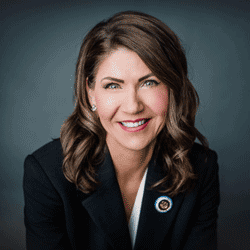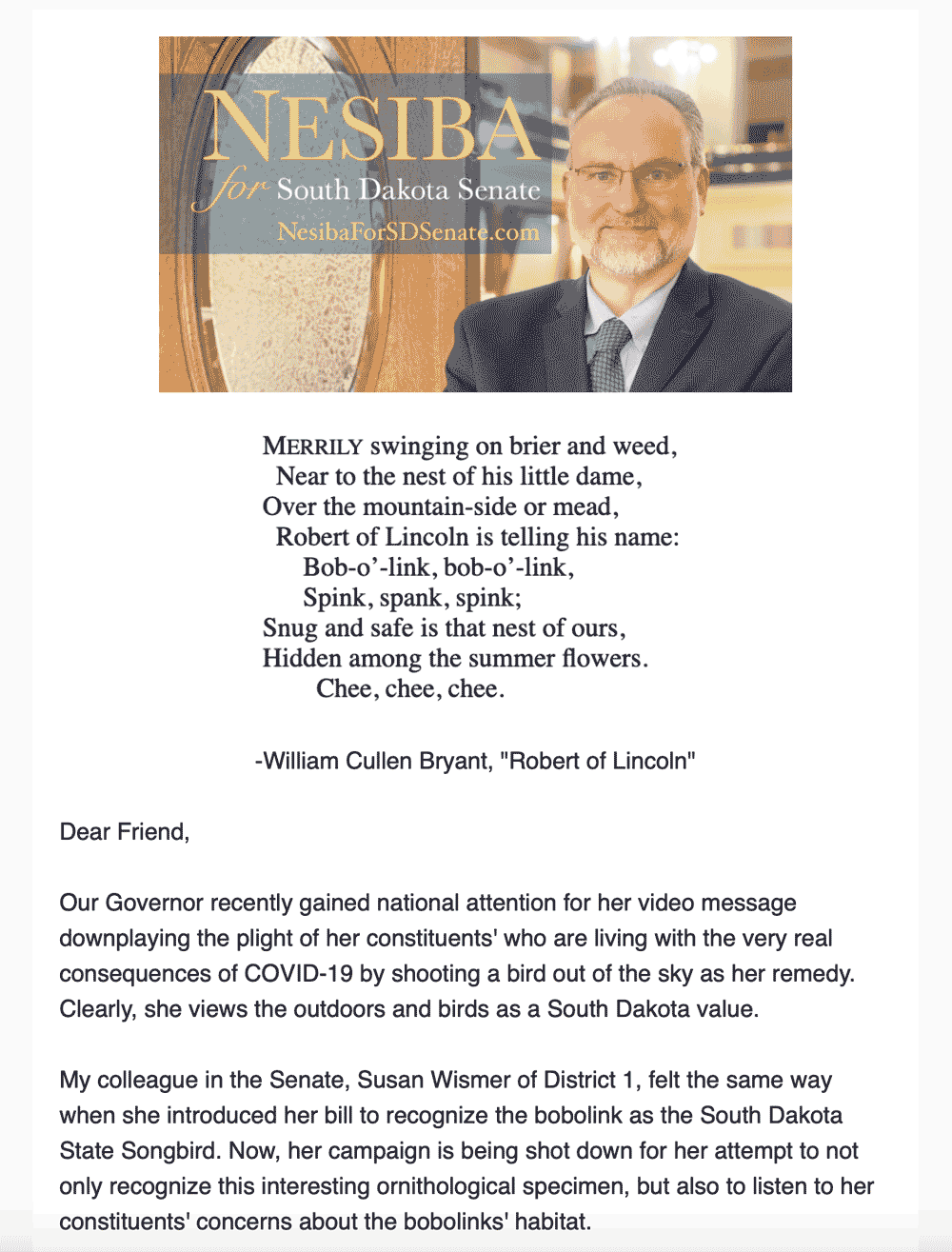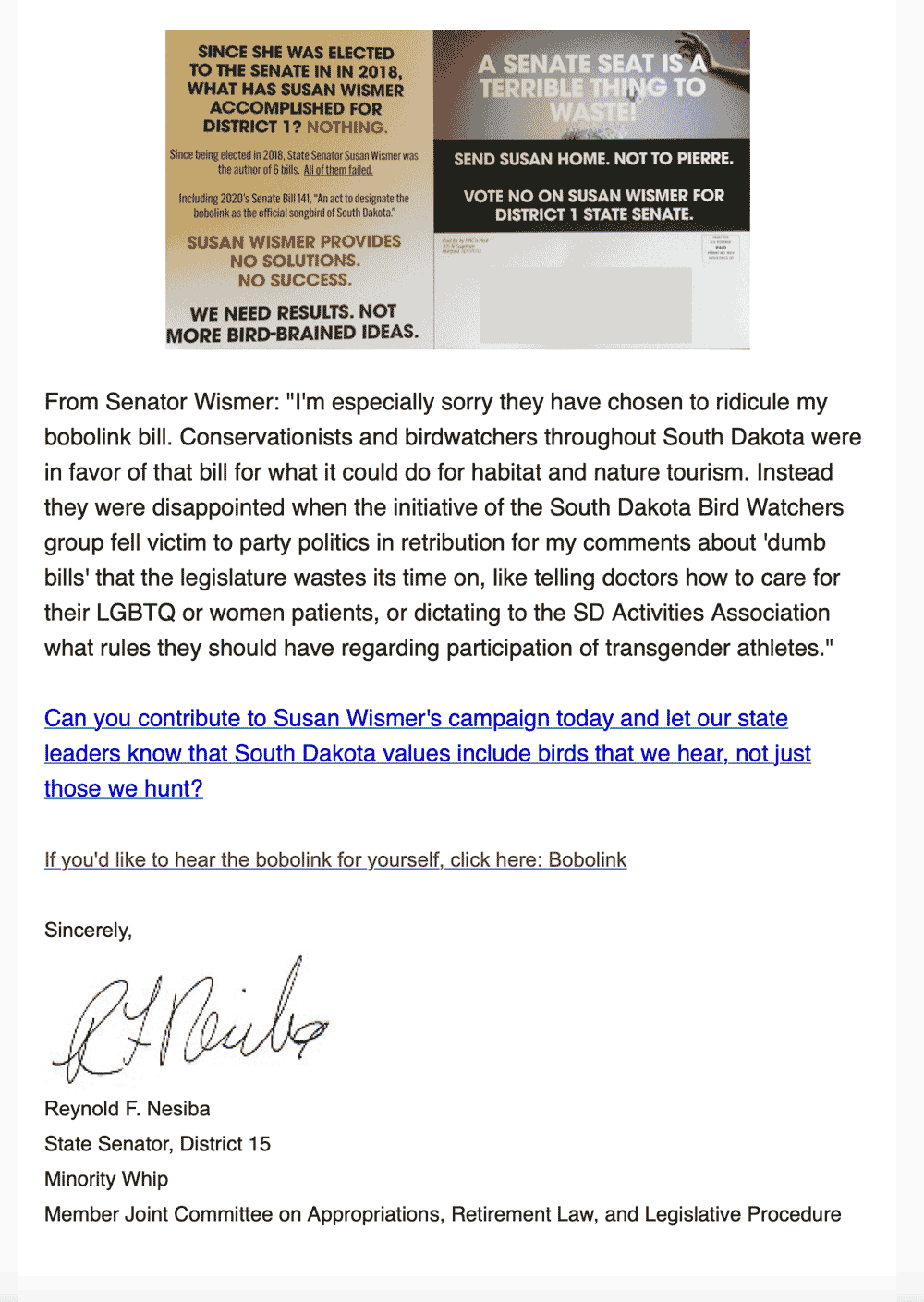

Johnson Introduces Sweeping Cattle Reform Bill
Washington, D.C. – Today, U.S. Representative Dusty Johnson (R-S.D.) introduced the PRICE Act, a bill that will increase transparency in the cattle market, improve risk management, and support new and expanding meat processors. Earlier this year, the U.S. Department of Agriculture (USDA) released the “Box Beef & Fed Cattle Price Spread Investigation Report,which identified a number of systemic issues in the cattle market. Johnson introduced the PRICE Act in response to the findings of this report.
The cattle market faced extreme volatility following the Tyson Holcomb plant fire in 2019 and again during the COVID-19 pandemic. The PRICE Act provides greater price reporting and transparency, comprehensive risk management solutions, bolsters small processor and producer-owned cooperative processing opportunities, and updates the Packer and Stockyards Act to create a cattle contract library.
“Cattle country is hurting and has not fully recovered,” said Johnson. “USDA laid out several areas where Congress can implement real solutions to improve the market – the PRICE Act is the answer to many of the issues our ranchers have faced for years. Our producers want a fair market and fair prices and that’s what this bill delivers. Congress needs to deliver for cattle country.”
“Our nation’s cattle producers are facing unprecedented market challenges due to supply chain disruptions created by the COVID-19 pandemic as well as last year’s fire at the Holcomb, KS beef plant,” said Agriculture Committee Ranking Member Mike Conaway. “I am proud to join my colleagues in introducing the PRICE Act, which offers a suite of consensus proposals that will improve the marketplace.”
“Ranching and beef production have been fundamental to Florida’s heritage and economy for hundreds of years,” said Congressman Soto. “Unfortunately, the COVID-19 pandemic has hit cattle country with one of the toughest challenges it will ever face. The bipartisan PRICE Act offers a solution to create cooperative opportunities for smaller processors bearing the brunt of supply disruption. Let’s help Florida’s cattle ranchers get the necessary help to make it through this crisis and continue to be an integral part of beef production across the country.”
“There is no disputing that the beef and livestock industry as a whole faced a challenging year. Following the fire at the Holcomb plant to the disruption caused by COVID-19, we have seen volatility like never before,” said Scott VanderWal, a producer from Volga who serves as the South Dakota Farm Bureau President. “No one solution is perfect, but a combination of common-sense, free-market changes can help. South Dakota Farm Bureau is pleased to see the introduction of the PRICE Act to promote greater price reporting and transparency in the market, diversification of processing and more comprehensive risk-management solutions.”
“SDCA thanks Representative Johnson for the comprehensive package of important issues addressed in the PRICE Act,” said South Dakota Cattlemen’s Association President Eric Jennings. “From furthering livestock risk management education to addressing cover crops on Prevent Plant acres, the PRICE Act addresses many of the issues and challenges beef producers face that have been highlighted by the Covid-19 pandemic. In particular, we have long supported the ability to ship our state inspected beef products across state lines. It’s also critical to find the right solution to livestock marketing issues, the proposed feasibility study for additional cattle processing facilities along with helping smaller beef processing plants increase their production are steps in the right direction. We greatly appreciate Representative Johnson’s efforts on behalf of livestock producers.”
The PRICE Act is cosponsored by Agriculture Committee Ranking Member Mike Conaway (R-TX), and Representatives Darren Soto (D-FL), Roger Marshall (R-KS), Henry Cuellar (D-TX), Frank Lucas (R-OK), Greg Gianforte (R-MT), David Rouzer (R-NC), Rick Crawford (R-AR), Jason Smith (R-MO), Tom Emmer (R-MN), and Jim Hagedorn (R-MN). It is also supported by the American Farm Bureau Federation, South Dakota Cattlemen’s Association, and National Cattlemen’s Beef Association.
Click here to read a summary of the bill, section by section or here for the full bill text.
###











